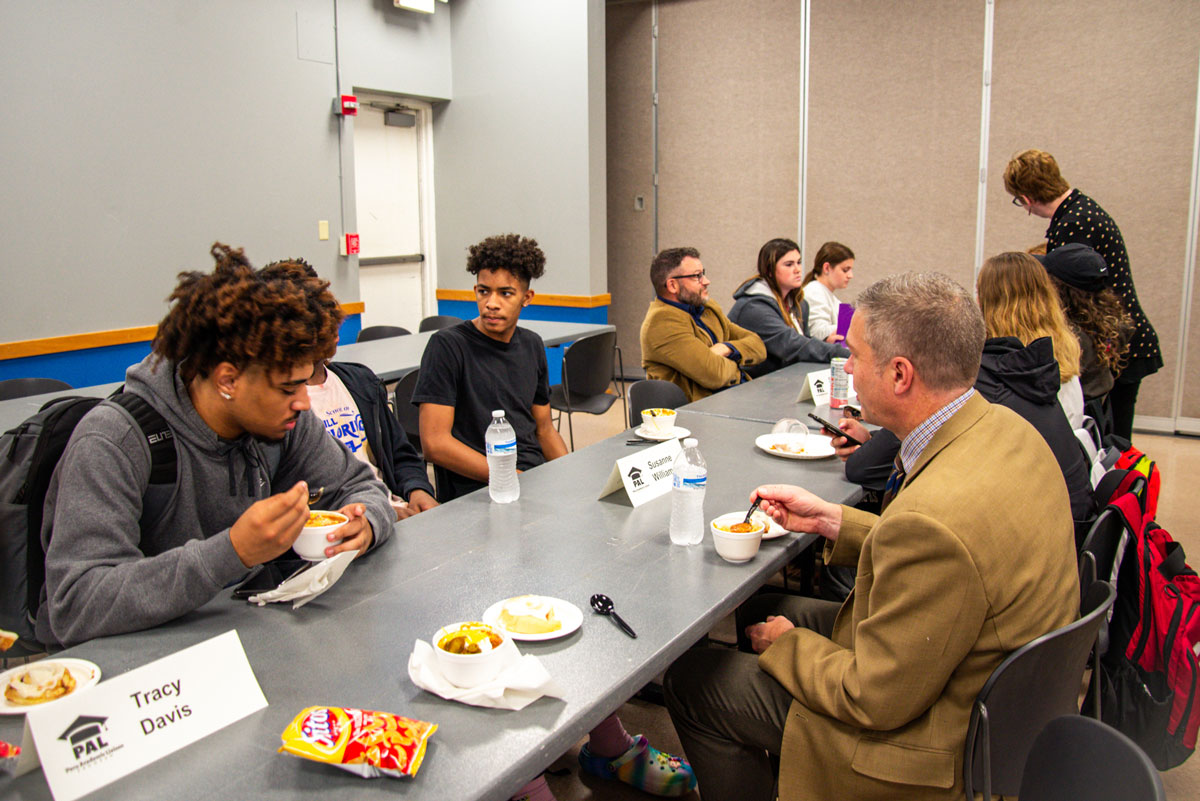Peru, Nebraska – Faculty and staff at Peru State College provide personalized support to new students through the College’s Peru Academic Liaison (PAL) program. The program recently concluded its fourth cycle with a celebration luncheon for new students and their PALs.
The purpose is to help the students adjust to college life. Through weekly face-to-face meetings, phone calls, and emails, PALs provide students with support and quickly connect them to campus support services as needed.
“We ask them, how are you? I’m here as your PAL and I’m here to help you become comfortable with being a student here at the College,” said Dr. Susanne Williams, retention specialist. “Most of the students are quite receptive to our outreach. They know they have someone looking out for them.”
The first eight weeks of the semester are known to be stressful for first-year students. Newly independent, they come to campus excited and nervous about navigating their new environment and responsibilities. They must get to class, work to meet the challenges presented by their instructors, decide how they will manage their time, and develop plans for paying their bills. They must learn to balance their academics, work, friendships, social life, and families.
“It’s a big adjustment,” said Williams.
“The PALs Program helps students to connect to the College. When students feel connection, they are a lot more likely to return the next semester,” said Dr. Tim Borchers, Vice President for Academic Affairs. “This program epitomizes the Peru State vision to provide personalized and transformative educational experiences.”
It was March 2020 when COVID inspired the creation of the PALs Program. Across the country, in-person classes were cancelled. At Peru State, students were away on Spring Break when the decision was made to shut down.
“Almost 800 students were sent home to finish the Spring semester remotely. We knew we couldn’t send them away without any support or regular communication and then expect them to be successful,” said Williams.
Within days, the college decided to deploy staff members as PALs to the remote students. Staff were quickly identified and trained on weekly talking points and support resources. Each communication attempt or connection was documented in the College’s retention software program.
“We found ourselves helping our students find Wi-Fi hotspots in their communities. Everything was shut down so they couldn’t just go to a library. A lot of our students didn’t have access to Wi-Fi,” said Borchers. “We identified students experiencing mental health issues and were able to connect them to our licensed student counselors. There were so many challenges we helped students work through.”
The outreach made a positive difference. A student wrote, “Thank you for keeping us students updated and giving us a staff member to contact us and check in on us, I feel like doing those things helped a lot of students.”
Since 2020, the College has modified the program, making it more of a retention strategy than an emergency response. This semester, students received a PALs T-shirt when they met their PAL for the first time. The eight-week program culminated in a special luncheon for the students and PALs.
The program lasts eight weeks because students will now connect with their academic advisors, who provide course planning and recommendations for the next semester.
“A lot of students have told their PALs they will keep meeting with them even though the program is officially concluded. They developed friendships that will bring them all the way to graduation,” said Williams.
